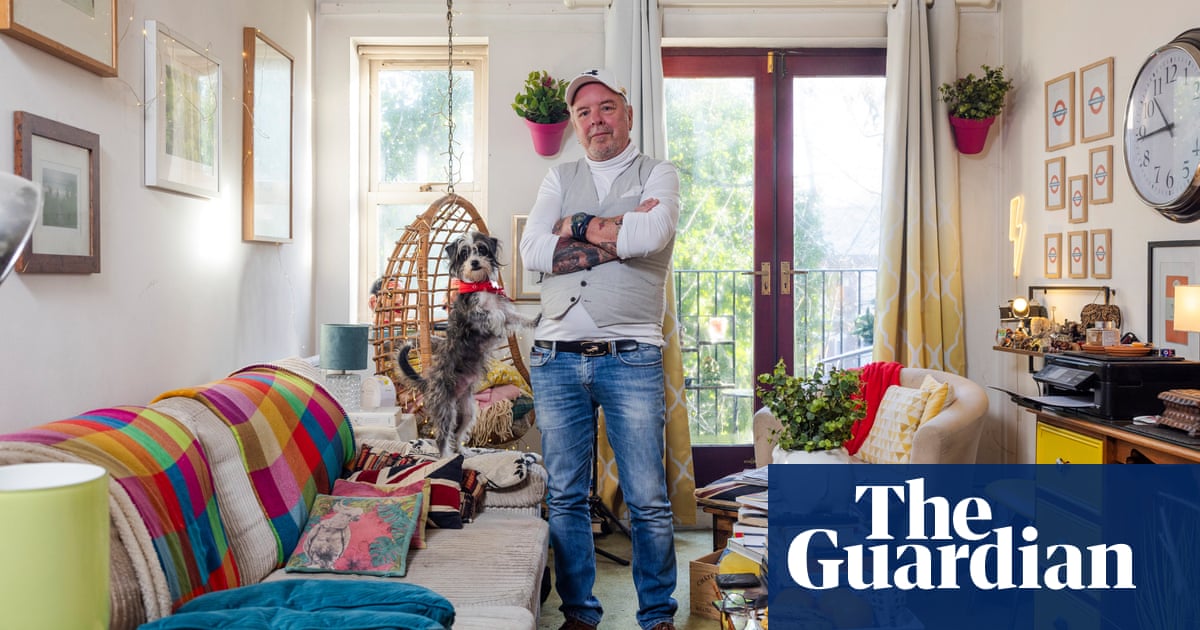
Iwas working as the marketing manager for an insurance company in Abu Dhabi when civil war broke out in Syria, the country of my birth. I’d left five years earlier, aged 25, but military service in Syria is mandatory, and the outbreak of war meant I would be expected to return. But I didn’t want any role in the killing machine.
When I refused to join the army, the Syrian embassy wouldn’t renew my passport. Without it, I couldn’t extend my work visa, so I was out of a job. For the next few years, I was forced to live under the radar – remaining in the United Arab Emirates illegally. I sold my belongings and worked off-grid when I could, sleeping in public gardens or stairwells. At the end of 2016, I was finally taken in by the police. After two months in an immigration detention jail, I was deported to Malaysia.
Malaysia is one of the few countries that allows Syrians an arrival visa, but it’s not party to the 1951 UN refugee convention, so I couldn’t seek asylum there and had to leave within 90 days. I had to find a country that would allow me in. I bought a $2,000 ticket to Ecuador – my mother and sister raised the money by selling their gold necklaces. On the day of the flight, a Turkish Airlines supervisor refused to let me board; he gave no reason.
Unable to get a refund, I bought a ticket to Cambodia in a last-ditch attempt to leave the country. I made it to Phnom Penh International, but was refused entry and sent back to Malaysia on the same plane. As I was deportee, I was unable to re-enter Malaysia, so until I found another solution, I would remain an exile in the arrivals hall of Kuala Lumpur airport.
Two Egyptians, who had been deported from South Korea five days earlier, gave me a thin blanket and showed me where to sleep. The floor was cold and hard, and I was still awake at 2am when two police officers came to question me. I would soon get used to constant visits from airport officials.
The Egyptians moved on and I was alone. Much of my time was spent solving day-to-day problems, such as how to take a shower, clean my clothes, charge my mobile. Air Asia took responsibility for feeding me (I was still officially their passenger) and an airline meal was left for me three times a day, but it was always the same: chicken and rice.
Getting regular coffee became an obsession. I made friends with a cleaner who, for a fee, agreed to make regular trips to Starbucks on my behalf. I paid other members of the cleaning staff to take my clothes home to wash, and learned to shower in the disabled toilets in the early hours. I started sleeping under the escalator, creating a sense of privacy by surrounding myself with plastic maintenance barriers. There were many things, though, I couldn’t control – the ever-present lighting and the airport announcements that jerked me awake.
After a month or so I started to worry that this was my life now.
I would try to remind myself I was not a criminal, and it was not my fault that my country was currently at war. I had a phone and experience in marketing, and wondered if that was something I could turn to my advantage. I set up Twitter and Instagram accounts and started sharing my story. There was little response at first, but after BBC News Asia highlighted my story, interest grew.
Over the next few months, I received both encouragement and abuse online, and was approached endlessly by passengers requesting selfies. Most importantly, though, I made contact with a group of Canadians who helped ensure that I had everything I needed and worked tirelessly so that I was ultimately able to claim asylum in Canada.
In total I spent seven months in the airport and another two in a detention centre, but I’d have endured years in limbo as long as I knew I’d eventually regain a degree of freedom. Many other Syrians have not been so lucky – if my mother hadn’t insisted on me learning English as a child, and my father hadn’t taught me patience, I wouldn’t have made it here.
Now I work for the Canadian Red Cross, and am helping with an organisation called Operation Not Forgotten, which resettles refugees. I hope that by telling my story, I will help people understand what it means to be Syrian in a world that does not make us welcome.
As told to Chris Broughton












